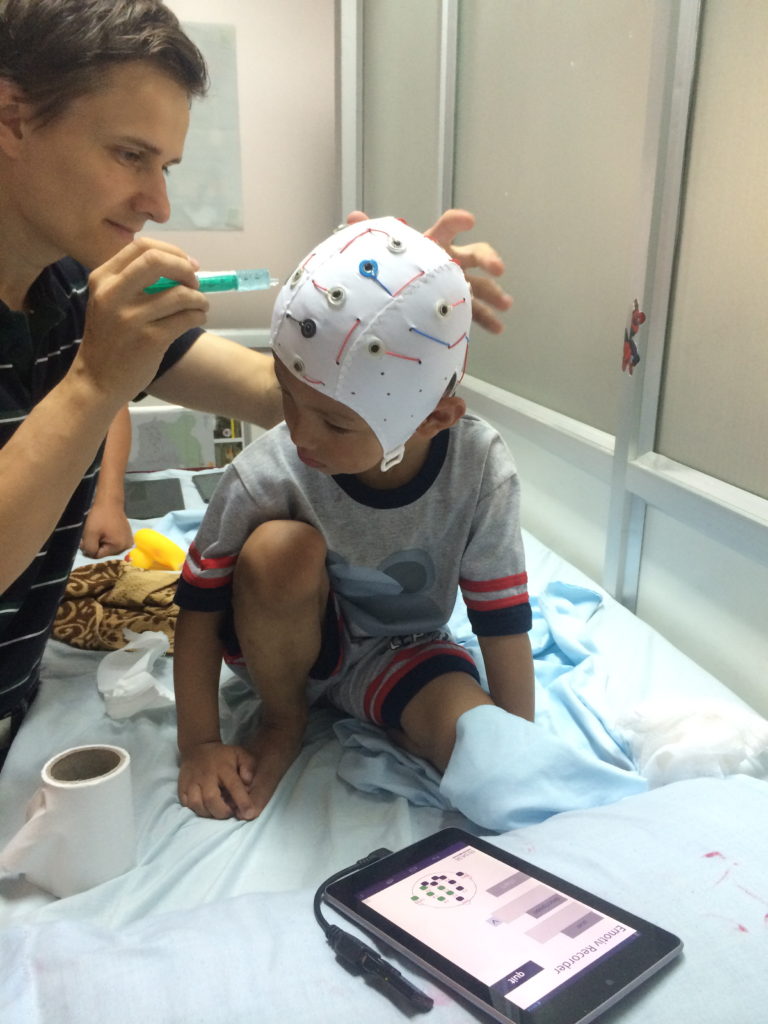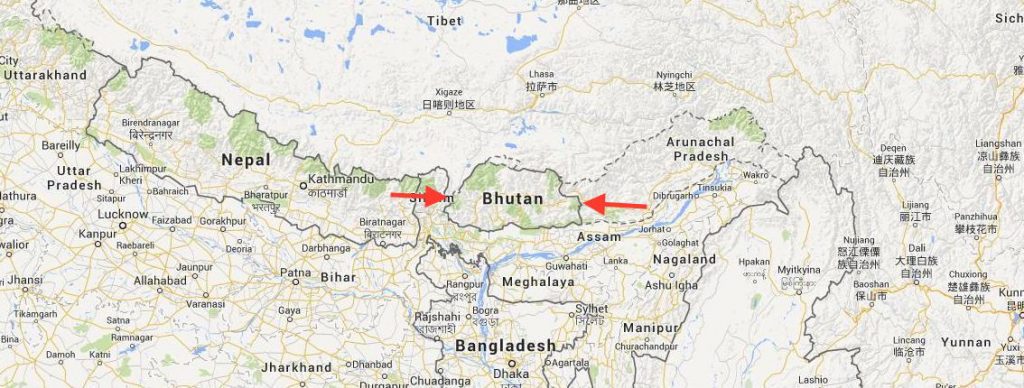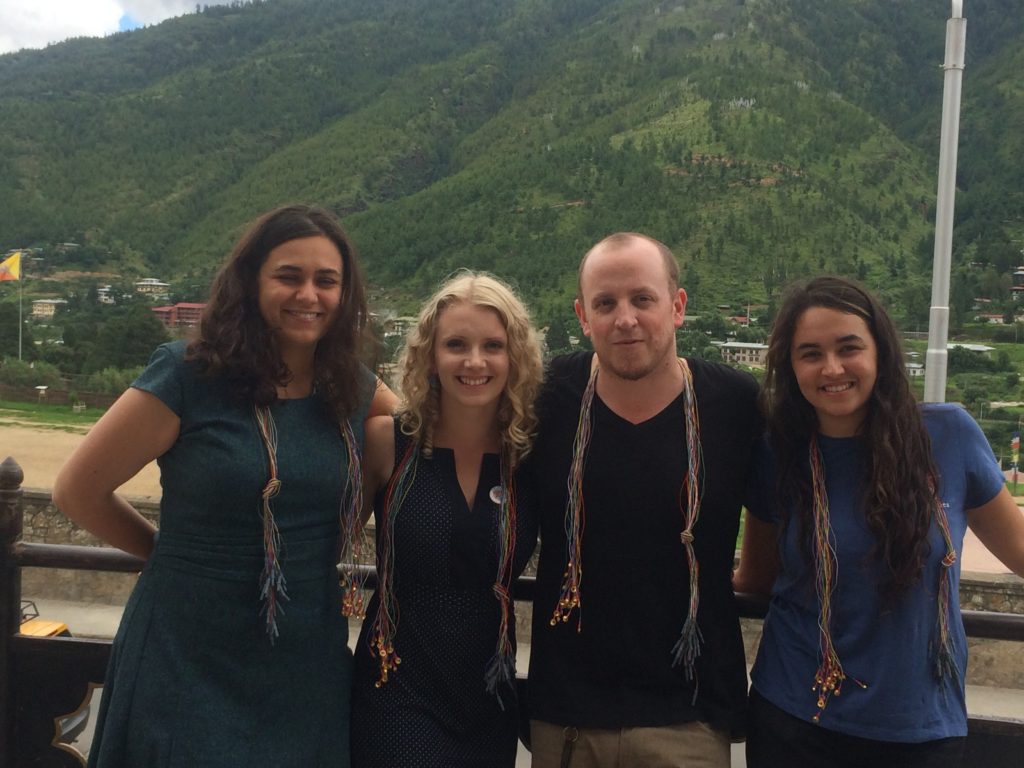 This post is part of the This post is part of the Epilepsy Blog Relay™ which will run from March 1 to March 31, 2017. Follow along!
This post is part of the This post is part of the Epilepsy Blog Relay™ which will run from March 1 to March 31, 2017. Follow along!
Dr. Mateen’s Story
If you are interested in innovation in Global Health, or in how low-cost technology can positively impact developing nations, you may have already heard about the Bhutan Epilepsy Project. If not, we are thrilled to introduce you to the project lead, Farrah Mateen, MD, PhD, of Massachusetts General Hospital and Harvard Medical School.
In 2013, The Bhutan Epilepsy Project received funding from Grand Challenges Canada, which allowed a team to head off to the Kingdom of Bhutan. The research team at Harvard Medical School along with colleagues in Denmark had developed a tool to facilitate diagnosis of epilepsy in rural settings and to ease the burden on patients. They hoped to provide an alternate to the expensive electroencephalogram (EEG).
Now four years later, this diagnostic tool has already benefited patients in Bhutan and has the potential to reach patients in other rural and under-resourced areas around the world. As you can see in the photo below, the technology is much more practical, using mobile phones for interpretation, and headsets in exchange for complicated wires and glue.
Why Bhutan?
According to Mateen, “Bhutan was chosen for several reasons. First, there are no neurologists practicing in the country. Epilepsy care is handled by psychiatrists, including the Bhutan Epilepsy Project collaborator Dr. Damber Nirola. Second, the region is rural area which can make transportation difficult for people with epilepsy. Third, there is reason to believe the burden of epilepsy is high due to neurocysticercosis, a parasitic cause of epilepsy, among other causes.”
Making a Difference
Since its inception in 2013, this project has received the support of Grand Challenges Canada, funded by the Government of Canada, and the Thrasher Research Foundation (Early Career Award). Academically, the University of Ottawa, JDW National Referral Hospital, Danish Technical University, and Massachusetts General Hospital are all collaborators.
Results So Far
The team has gathered data, which has resulted in the following publications.
-
Saadi A, Patenaude B, Nirola DK, Deki S, Tshering L, Clark S, Shaull L, Sorets T, Fink G, Mateen F. Corrigendum to “Quality of life in epilepsy in Bhutan” [Seizure 39 (2016) 44-48]. Seizure. 2016 Nov; 42:14. PMID: 27639029.View in: PubMed
-
Brizzi K, Pelden S, Tshokey T, Nirola DK, Diamond MB, Klein JP, Tshering L, Deki S, Nidup D, Bruno V, Dorny P, Garcia HH, Mateen FJ. Neurocysticercosis in Bhutan: a cross-sectional study in people with epilepsy. Trans R Soc Trop Med Hyg. 2016 Sep; 110(9):517-526. PMID: 27794094.View in: PubMed
-
Saadi A, Patenaude B, Nirola DK, Deki S, Tshering L, Clark S, Shaull L, Sorets T, Fink G, Mateen F. Quality of life in epilepsy in Bhutan. Seizure. 2016 Jul; 39:44-8. PMID: 27257785.View in: PubMed
-
Brizzi K, Deki S, Tshering L, Clark SJ, Nirola DK, Patenaude BN, McKenzie ED, McLane HC, Cash SS, Dorji C, Mateen FJ. Knowledge, attitudes and practices regarding epilepsy in the Kingdom of Bhutan. Int Health. 2016 Jul; 8(4):286-91. PMID: 27160683.View in: PubMed
-
McKenzie ED, Nirola DK, Deki S, Tshering L, Patenaude B, Clark SJ, Cash SS, Thibert R, Zepeda R, Leung EC, Lam AD, Lim AS, Mantia J, Cohen J, Cole AJ, Mateen FJ. Medication prescribing and patient-reported outcome measures in people with epilepsy in Bhutan. Epilepsy Behav. 2016 Jun; 59:122-7. PMID: 27131914.View in: PubMed
More to Come
Keep an eye on Dr. Mateen. We can’t wait to see where she will show up next.
 NEXT UP: Be sure to check out the next post tomorrow by Dr. Cynthia Harden for more on epilepsy awareness. For the full schedule of bloggers visit livingwellwithepilepsy.com.
NEXT UP: Be sure to check out the next post tomorrow by Dr. Cynthia Harden for more on epilepsy awareness. For the full schedule of bloggers visit livingwellwithepilepsy.com.
TWITTER CHAT: And don’t miss your chance to connect with bloggers on the #LivingWellChat on March 31 at 7PM ET.












Leave a Reply